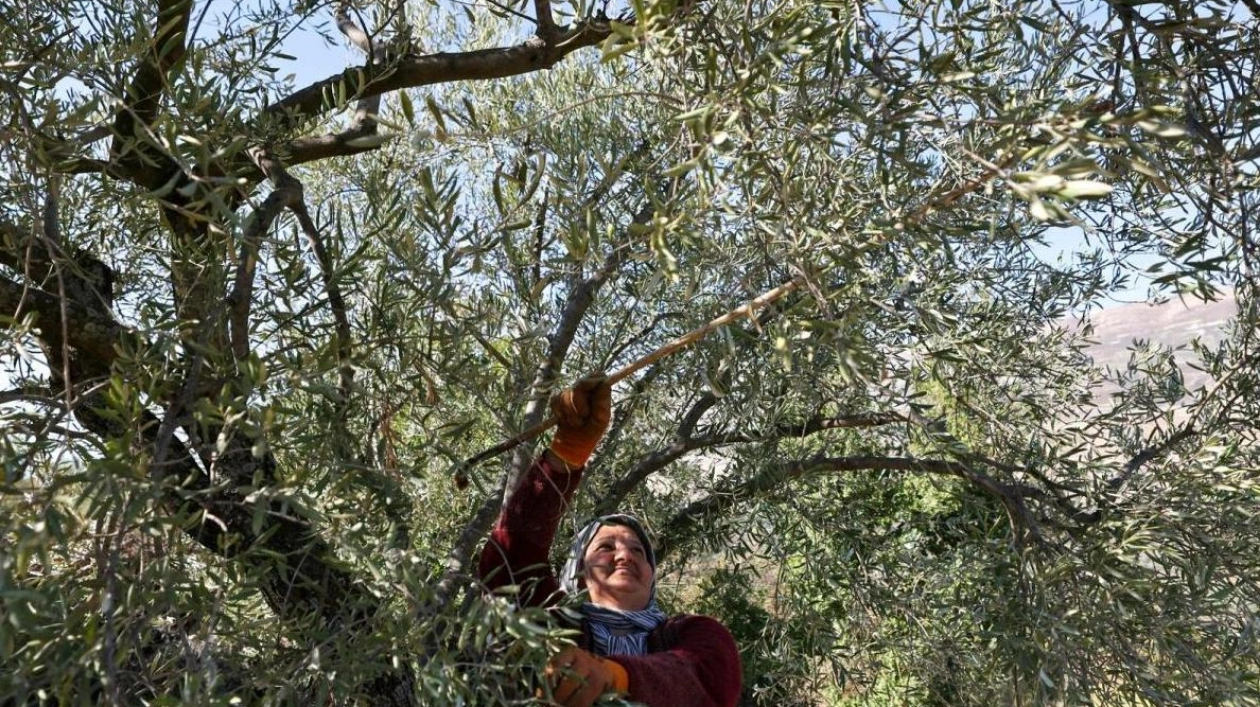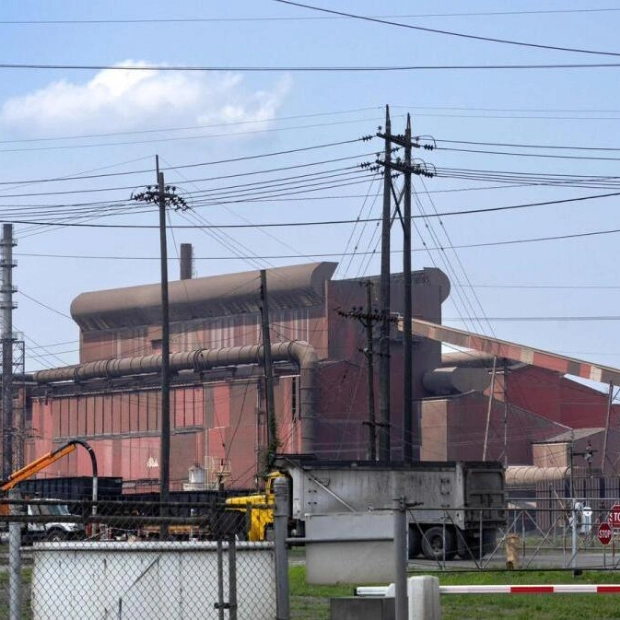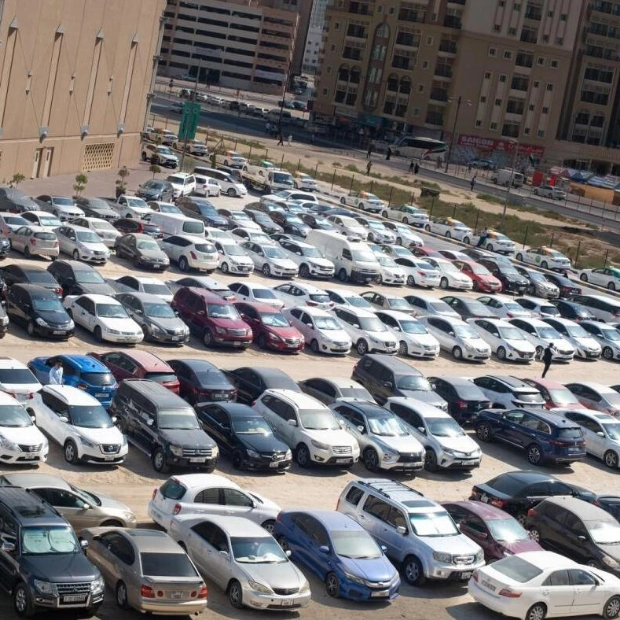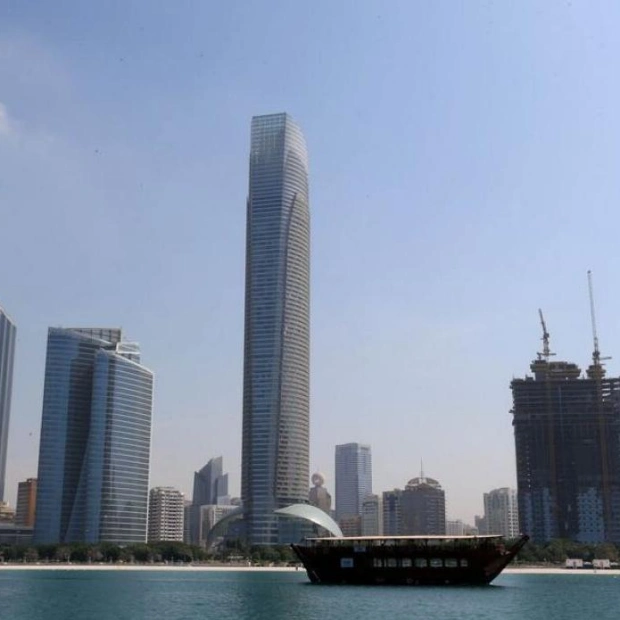In the southern Lebanese village of Kfeir, a woman is seen harvesting olives on November 15, 2024, amidst the ongoing conflict between Israel and Hezbollah. — AFP
On a hillside in southern Lebanon, agricultural worker Assaad Al Taqi continues to gather olives, unaffected by the Israeli warplanes flying overhead. This year, his harvest is set against the backdrop of the escalating Israel-Hezbollah war. He works in Kfeir, a village located just a few kilometers from areas heavily bombarded by Israel since its campaign against Iran-backed Hezbollah intensified in September.
"I'm not afraid of the shelling," Taqi said, as he and other workers used sticks to knock olives from the trees, filling jute bags. "Our presence here is a form of resistance," the 51-year-old added, noting that the olive tree symbolizes peace. Kfeir, situated 9km from the Israeli-occupied Golan Heights, is part of the mixed Christian and Druze district of Hasbaya, which has largely escaped the violence affecting nearby Hezbollah strongholds. However, Hasbaya's relative calm was shattered last month when three journalists were killed in an Israeli strike on a building where they were staying.
The workers in Kfeir take breaks under the olive trees, about 900 meters above sea level on the slopes of Mount Hermon, overlooking an area where Lebanese, Syrian, and Israeli-held territories converge. They have been working peacefully since dawn, interrupted only by sonic booms from Israeli jets and the sight of smoke rising from strikes on a village near the southern Lebanon border.
Farmers in Kfeir harvest olives on November 15, 2024. — AFP
Hassna Hammad, 48, one of the olive pickers, said that farming is her livelihood. "We aren't afraid, we're used to it," she said about the war. However, she expressed concern for her fellow Lebanese affected by the conflict, referring to the hundreds of thousands displaced by the fighting. In other parts of southern Lebanon, olive trees are laden with fruit that no one is picking, as villagers have fled Israeli bombardment and the subsequent ground operation that started on September 30.
A World Bank report this month estimates that the disruption of the olive harvest due to bombing and displacement will result in $58 million in losses for Lebanon. The report states that 12% of olive groves in the conflict-affected areas have been destroyed. Typically, the olive harvest is a highly anticipated event in Lebanon, drawing people back to their native villages and fields each year.
"Not everyone has the courage to come" this year, said Salim Kassab, who owns a traditional press where villagers bring their olives to extract oil. "Many people are absent... They sent workers to replace them," said Kassab, 50. "There is fear of the war, of course," he added, noting that he came alone this year without his family. Kassab mentioned that before the conflict, he would travel to southern cities like Nabatiyeh and Sidon for repairs, but such trips are now too dangerous.
The World Bank report estimates that 12 months of losses in the agriculture sector have cost Lebanon $1.1 billion, in a country already struggling through a five-year economic crisis before the fighting began. Areas near the southern border have suffered "the most significant damage and losses," the report states, citing "the burning and abandonment of large areas of agricultural land" and "lost harvests due to the displacement of farmers."
Elsewhere in Kfeir, Inaam Abu Rizk, 77, and her husband were washing olives they plan to press for oil or store for winter use. Abu Rizk has participated in the olive harvest for decades, a tradition passed down through generations, and said that despite the war, this year is no exception. "Of course, we're afraid...there is the sound of planes and bombing," she said. But "we love the olive month — we are farmers and the land is our work."
Source link: https://www.khaleejtimes.com






